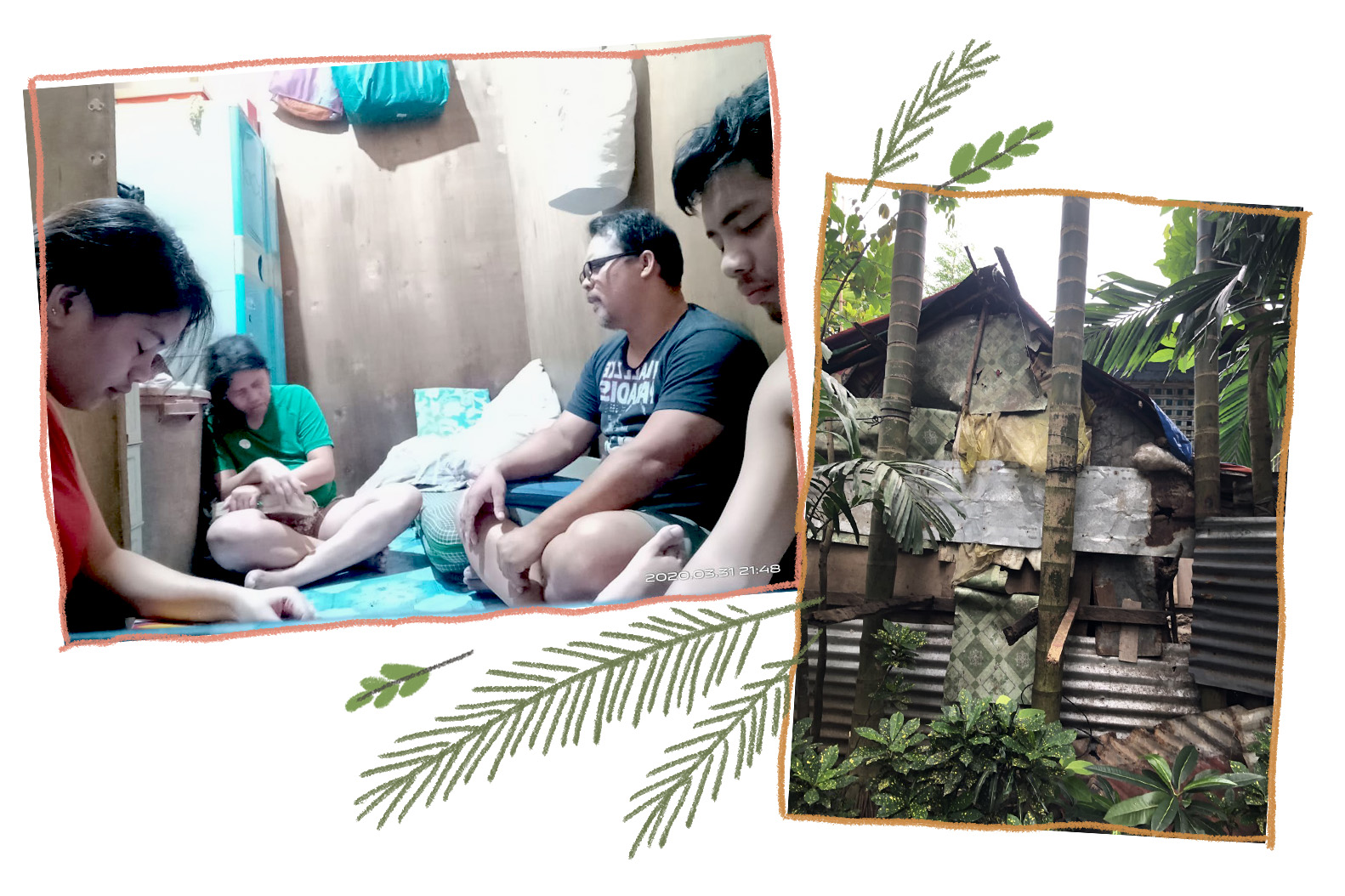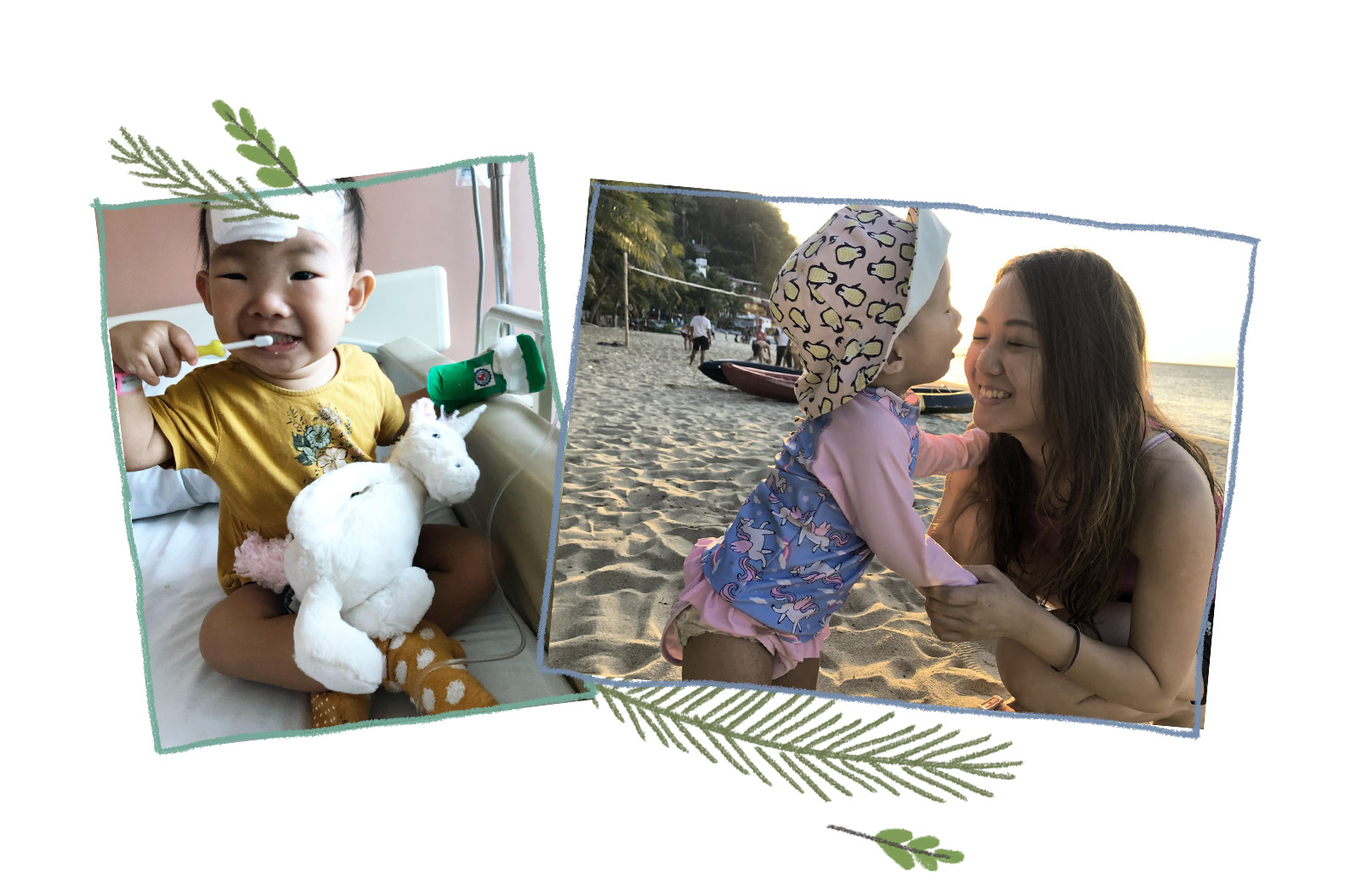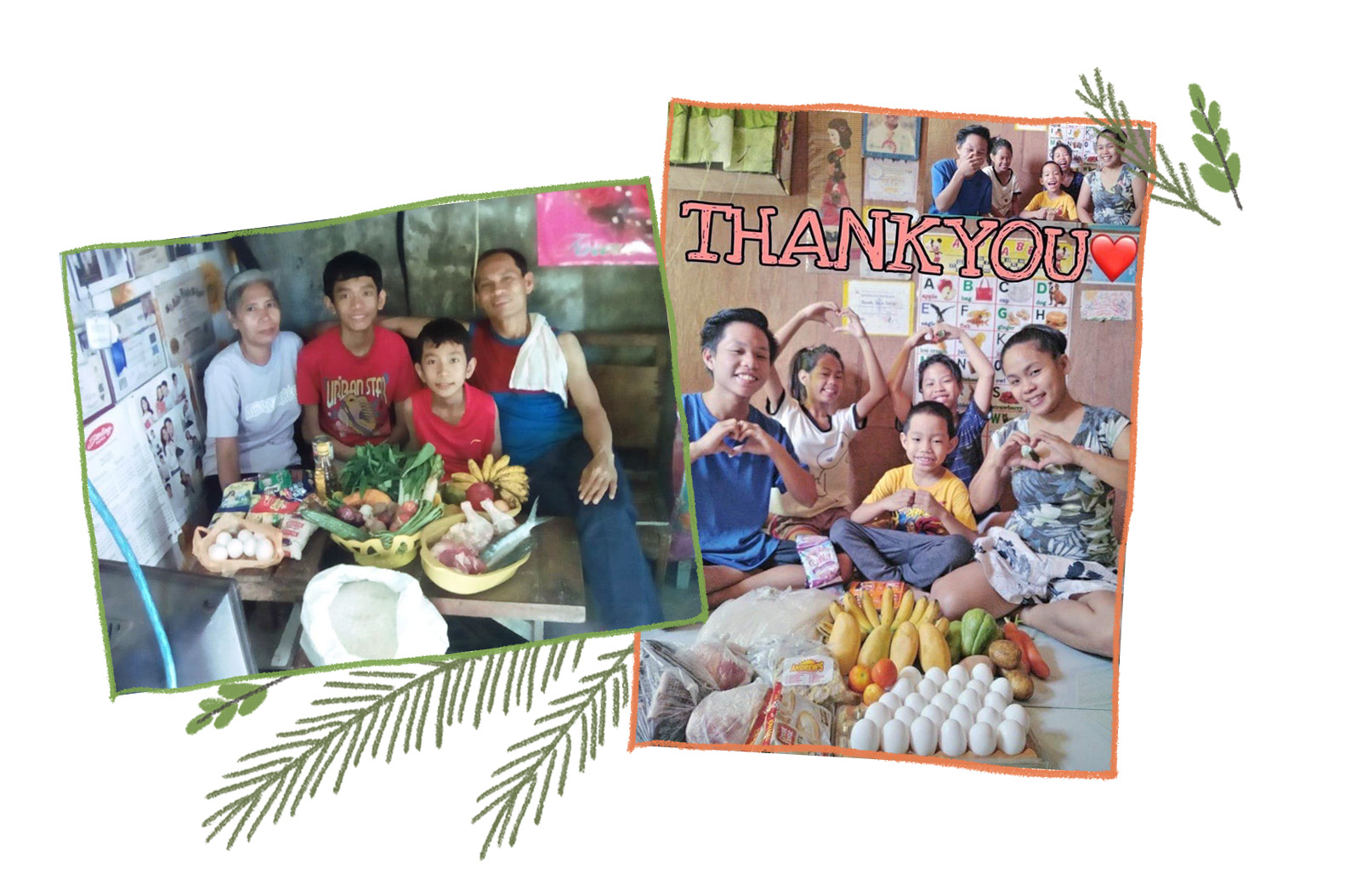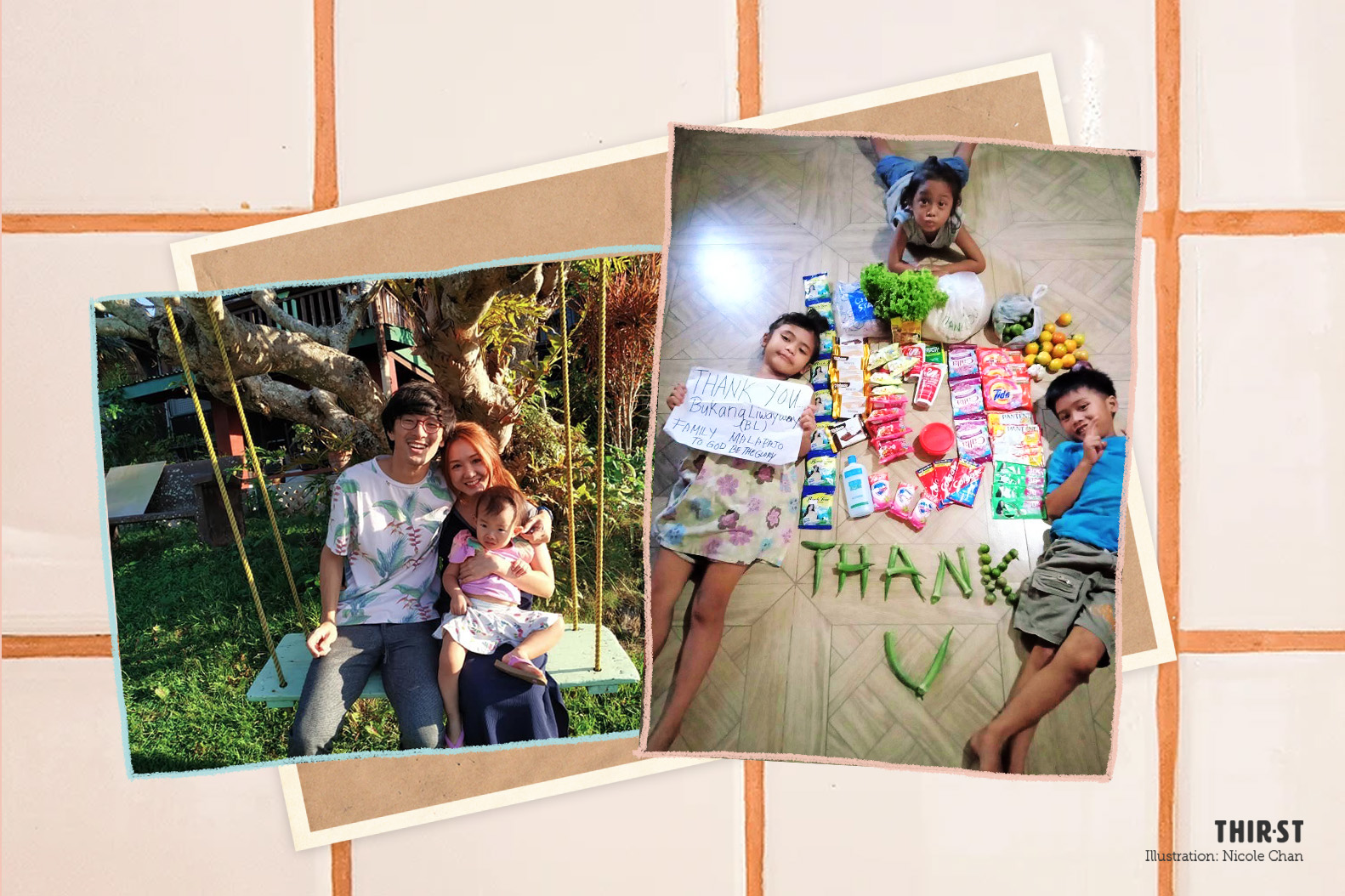“International travel will be suspended from Friday. Do you think it’s still good for you to be here or should you consider returning to Singapore?”
COVID-19 was swelling worldwide, and the Philippines had announced a lockdown on its main island of Luzon. Where we were in Marilao, 45 minutes outside of Metro Manila, the coronavirus felt far from our sleepy subdivision of shuttered houses.
We knew we could survive this lockdown by walking out to 7-Eleven and the vegetable stalls. Our data was freshly reloaded, ready for the slow download of Netflix shows.
So when our OMF coordinator asked us to consider returning to Singapore, we were shaken.
How could we say goodbye to our Marilao life in 72 hours?
It had taken 10 months to finally reach our level of adjustment. Surely this lockdown was exactly what God had prepared us for. After all, He had put us under lockdown before.

We arrived in Marilao in June 2019, gungho and ready for action. By the first night, we were brought to our knees.
Running water had stopped, and whatever trickled out of the taps from 1-5 am was yellow. Trucks delivered water every few days, and we learned, by trial and error, which truck sold dirty water.
On our five short mission trips with BL before this, we had already visited slums suffocated of light and space as well as cardboard shelters that housed families of six. But nothing could bring us closer to the people we served until we had struggled through their water shortage. We found motivation in that.
The bigger challenge would turn out to be internal. We loved our entirely Filipino team and church, but cultural and language barriers took their toll. Our inner circle had shrunk to our little family, and we were growing resentful of each other.
Having a toddler on mission meant we could not repeat the adventures that had spurred us to sign on for a year: midnight kerbside devotions with skater boys, long sharing sessions with the youths, rugged home visitations…
We clung to ministry busyness to justify our time in Marilao. Even so, taking turns to parent in the background frustrated us. We were used to the validation that non-stop ministry gave us, and this slower rhythm made us feel invisible. At my lowest point, I only had to think of the word “lonely” to cry.
That was when God put us under our first lockdown.

In our third month, Theo suffered a bacterial infection and was put on an antibiotics drip for nine days. The three of us were confined in a hospital room with nowhere to run from each other, no way to hurry on with our work and nothing we could do but wait for healing.
Looking back, it was our Jonah-in-a-whale experience. In our helplessness, God sent colleagues and even strangers to bring us food, accompany us overnight, do our laundry and pray for us. In that room, we learned that our mission was not to be busy with ministry, but to humbly allow God to remake us.
In the stillness of our confinement, we saw God at work. That proved to be a turning point for our life in Marilao.
By the time the first COVID-19 cases spread in Manila, we were a transformed family. We spent our days at home as a loving trio, contented to worship God in rest.
Kelvin developed a system of heating and filtering our water. Our home was filled with DIY improvements, warm lighting and wall art. We frequently had people over for dinner and video games. We could converse in just enough Tagalog to delight Filipinos. All the tricycle riders in Marilao now knew where we lived and worked.
Kelvin had completed two basketball ministry training camps and was gearing up to run a sports league for 200 youths. I had launched a T-shirt collection for BL’s livelihood business and even made coronavirus-inspired T-shirts for myself as a light-hearted response when the virus first spread.

“Should you consider returning to Singapore?”
No, we had not come this far to stop two months shy of our term’s end! Surely we could survive this lockdown to finish our projects or at least say goodbye. One more basketball game, one more church service, one farewell photograph… that was all we wanted.
There was also survivor’s guilt in leaving our friends behind. At the time, Singapore was a shining example in international press for its COVID-19 containment. In Manila, overloaded hospitals were leaving even the rich to die outside its doors.
We thought of our friends cloistered in makeshift spaces, without income or any chance of getting healthcare. Our director was raising funds to distribute relief to 800 poor families in our programme.
“Do you think it’s still good that you’re here in the country?”
Yes, because couldn’t we do more for them here?
We said we would pray about it overnight. Every time we looked at each other, we found each other crying.
“We’ll wait and see,” was our eventual reply.
One week later, international travel remained open, but Singapore Airlines cancelled over 90% of their flights. The last foreseeable flight out of Manila was five days later.
As the cases in Luzon exploded, a lockdown extension seemed inevitable. At midnight, we were staring at flight bookings and praying for God’s guidance.
And then came to us: God is the One who takes care of His people. Not us.
He was there when their homes burned down again and again. He was there when they were evicted from one slum to another. He had lifted them up from family crises with BL scholarships, giving them faith to serve full-time in BL after graduation.
Who were we in comparison to Him? There was no shame in retreating home early and nothing to prove by staying.
With a promise to return, we booked our flight and broke the news in tears to our team over video call.
The next two weeks, we saw God come through. We received reports of families praying and having devotions together, their faith strengthened in calamity.
Our friends joyfully praised God for every meal on the table. A bag of rice, some canned fish, crackers – every provision bolstered their hope in God. The coronavirus T-shirts sold out in a mini fundraising effort, just a drop in the international donations that enabled BL to distribute a first wave of relief to the slums.
And against all odds, even six weeks later, everyone was still clear of COVID-19 symptoms. 800 families in the slums. God was protecting the most unprotected of His creation.

It was back to the same lesson for us.
The lockdown tied our busy hands. The early departure threw us back into the belly of the whale. All we could do was watch – and admire our Father God as He saved His people.
During this Circuit Breaker, it feels like all of us have our hands tied. Helplessness can be panic-inducing, whether we are missionaries pulled abruptly from our fields, workers put out of jobs, or ministry leaders flailing to get our congregation’s attention online.
For those of us not on the frontlines, grief escapes in our cries: “We can do so much more than this, Lord!” Yet God is sovereign over every season, even seasons of stillness.
As one who has been through a few lockdowns now, I say, let Him lock you down. Let Him take over.
In the humility of stillness, you will see that it is He, always He, who fights for us.
Bukang Liwayway (BL), or Dawn for the Poor Foundation, is a Christian organisation that aims to empower poor Filipino communities through church planting, scholarships, healthcare and livelihood businesses.
If you would like to contribute to their fundraising effort to help families under their care, details can be found on their website. They also have a Facebook page.
- How are you feeling during this Circuit Breaker?
- Have you made time to be still before the Lord every day?
- What lessons is God teaching you?









